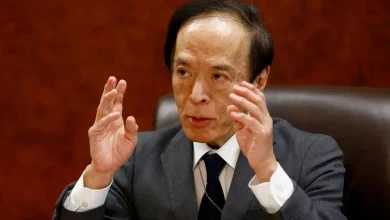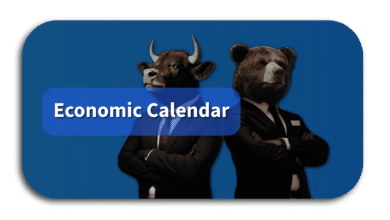U.S. Treasury Secretary Bessent And The Fed’s Kashkari Comment on Tariffs And U.S. Economy
U.S. Treasury Secretary Bessent announced that he would take a leading role in tariff negotiations in the United States. He also indicated that progress on the new tax cut bill is gaining momentum, and that over 70 countries are arranging meetings with the U.S. administration to negotiate tariffs.
Comments from U.S. Treasury Secretary Bessent:
- We hope to reduce the debt-to-GDP ratio by 1 percentage point per year.
- We want to deleverage the government sector and increase leverage in the private sector.
- Discussions on the tax bill are progressing better than expected.
- I expect to reach an agreement with our allies, after which we can approach China as a group.
- Bessent commented that Spain’s remark about aligning more closely with China would be “cutting your own throat.”
- China is the only country that has escalated trade actions.
- The U.S. is “overwhelmed” with requests from countries wanting to negotiate in Washington — currently, 70 negotiations are scheduled.
- Tariff levels are a ceiling if other countries do not retaliate.
- Economically, we are in fairly good shape.
- Although there is some uncertainty, companies tell me that the economy remains very solid.
- Bessent emphasized that the Treasury’s expanded role in financial regulation will be carried out through the Financial Stability Oversight Council, the President’s Working Group on Capital Markets, and cooperation with banking regulators.
- The U.S. Treasury will take a greater role in financial regulation.
- It is now Main Street’s turn, not Wall Street’s.
- Deregulation should enable banks to purchase more U.S. Treasury securities.
Comments from Fed’s Neel Kashkari:
- The risk of unanchoring inflation expectations appears to have risen notably.
- Once we are confident about inflation expectations, we can focus on the trade-offs between policy goals.
- The hurdle to changing interest rates has increased due to tariffs.
- Near-term inflation will rise, purchasing power will decline, investment will likely fall, and GDP will shrink due to tariffs.
- The announced tariffs are much higher and broader than expected, resulting in a larger economic impact and a shock to confidence.
- The bar for cutting interest rates is now higher, even if the economy and the labor market weaken.
- No monetary policy response — either upward or downward — should be ruled out.
- The first priority must be to keep long-run inflation expectations anchored.
- It is “too risky” to ignore the inflationary effects of tariffs.
- The falling neutral interest rate due to tariffs reduces the immediate need for a rate hike.
- The risk of unanchoring inflation expectations has notably risen.
- The near-term neutral interest rate is likely to fall amid tariffs.
- Monetary policy is tightening on its own, reducing the need to raise rates.
- I could revise my outlook if uncertainty resolves quickly.
- The first priority must be to keep long-run inflation expectations anchored.
The material on this page does not constitute financial advice and does not take into account your level of understanding, investment objectives, financial situation or any other specific needs. All information provided, including opinions, market research, mathematical results and technical analyses published on the Website or transmitted To you by other means, it is provided for information purposes only and should in no way be construed as an offer or solicitation for a transaction in any financial instrument, nor should the information provided be construed as advice of a legal or financial nature on which any investment decisions you make should be based exclusively To your level of understanding, investment objectives, financial situation, or other specific needs, any decision to act on the information published on the Website or sent to you by other means is entirely at your own risk if you In doubt or unsure about your understanding of a particular product, instrument, service or transaction, you should seek professional or legal advice before trading. Investing in CFDs carries a high level of risk, as they are leveraged products and have small movements Often the market can result in much larger movements in the value of your investment, and this can work against you or in your favour. Please ensure you fully understand the risks involved, taking into account investments objectives and level of experience, before trading and, if necessary, seek independent advice.







